
 |
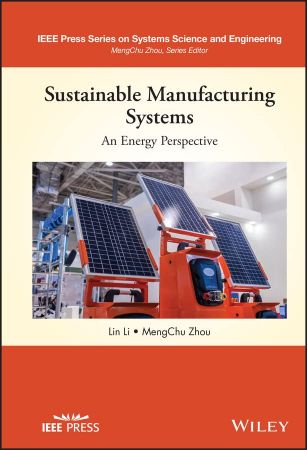 English | 2022 | ISBN: 1119578248 | 433 pages | True PDF EPUB | 47.46 MB Sustainable Manufacturing Systems Learn more about energy efficiency in traditional and advanced manufacturing settings with this leading and authoritative resource Sustainable Manufacturing Systems: An Energy Perspective delivers a comprehensive analysis of energy efficiency in sustainable manufacturing. The book presents manufacturing modeling methods and energy efficiency evaluation and improvement methods for different manufacturing systems. It allows industry professionals to understand the methodologies and techniques being embraced around the world that lead to advanced energy management. 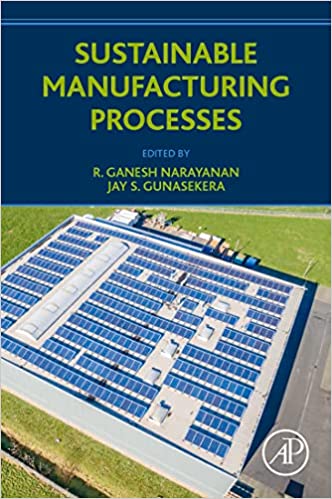 English | 2022 | ISBN: 0323999905 | 370 pages | True PDF EPUB | 119.99 MB Sustainable Manufacturing Processes provides best practice advice on sustainable manufacturing methods, with examples from industry as well as important supporting theory. In the current manufacturing industry, processes and materials are developed with close reference to sustainability issues, and with an outward look to optimum production efficiency and reduced environmental impact. Important topics like the use of renewable energy, reducing material waste and recycling, reduction in energy and water consumption, and reduction in emissions are all discussed, along with broad coverage of deformation and joining technologies, computational techniques and digital engineering. In addition, a wide range of traditional and innovative manufacturing technologies are covered, including friction stir welding, micro forming, additive manufacturing, extrusion, and hot forming. 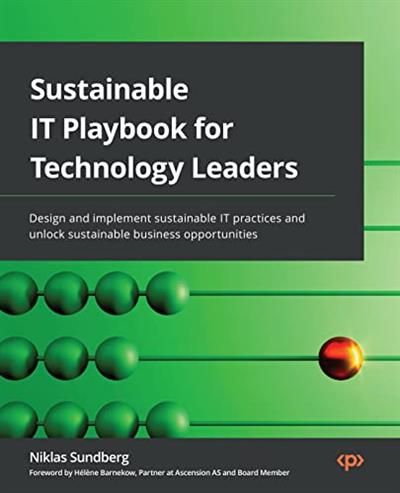 English | 2022 | ISBN: 1803230347 | 418 pages | True PDF EPUB | 49.68 MB At a critical point in human history, this book presents proven ways to gain the skills needed to develop sustainable IT practices and set yourself apart as a progressive technology leader Key Features  English | 2022 | ISBN: 1501364774 | 672 pages | True EPUB | 91.25 MB Author Lisa M. Tucker covers topics with a holistic approach, from the structural (site consideration and foundations) to the environmental (indoor air, acoustics, and safety), making a clear case for interior design professionals to understand their moral responsibilities to people, and to follow sustainable building practices. Now in its third edition, the award-winning Sustainable Building Systems and Construction for Designers has been updated to reflect current CIDA accreditation standards and include recent industry trends related to interior construction, such as security and well-being. Line drawings, case studies with photo examples, and sample student work support the learning experience of this essential topic. New to this Edition 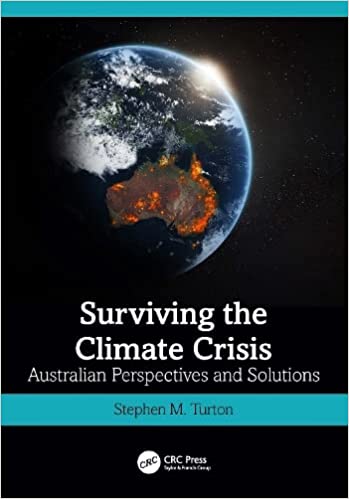 English | 2022 | ISBN: 978-1032039473 | 257 pages | True PDF | 43.7 MB This is the first textbook to adopt an integrated perspective of climate change in Australia, drawing on research from the latest Intergovernmental Panel on Climate Change (2021, 2022) Sixth Assessment Reports to make it the most up-to-date resource available. It fills a knowledge gap in an ever-increasing hot topic for the country, its people, economy and environment. Australia has been identified by a number of respected sources as a 'climate change hotspot', with all major sectors of the economy considered vulnerable or highly vulnerable to the anticipated adverse impacts of climate change. The chief industry sectors examined in this book include energy, transportation, manufacturing, agriculture, fisheries, forestry, tourism and mining. Other chapters focus on other key thematic areas, such as protected areas and world heritage sites (including their natural and cultural values), coastal and island environments, biosecurity, biodiversity and ecosystem services, human health, water resources, cities and settlements, rural and regional areas, and Indigenous communities. 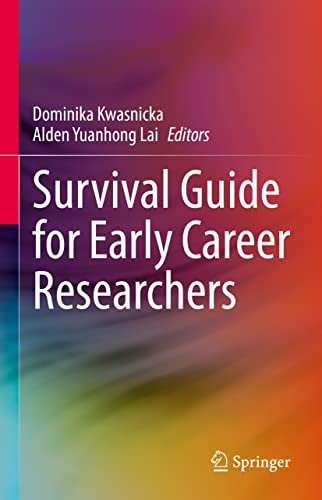 English | 2022 | ISBN: 3031107535 | 266 pages | True PDF EPUB | 11.66 MB Navigating research careers is often highly challenging for early career researchers (ECRs) in the social sciences. The ability to thrive in research careers is complex and requires "soft" people and management skills and resilience that often cannot be formally taught through university coursework. Written from a peer perspective, this book provides guidance and establishes emotional rapport on topical issues relevant for ECRs in academia and industry. The authors are ECRs who have been successful in navigating their careers, and they seek to connect with readers in a supportive and collegial manner. Each chapter includes elements of story-telling and scientific thinking and is organized into three parts: (1) a personal story that is relevant to the topic; (2) key content on professional and personal effectiveness based on evidence in the psychological, sociological, and/or management sciences; and (3) action points and practical recommendations. The topics covered are specifically curated for people considering undertaking research careers or already working in research, including: 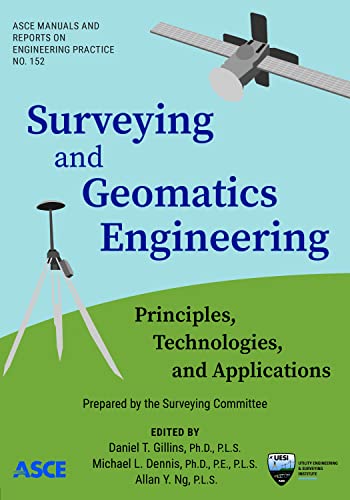 English | 2022 | ISBN: 0784416036 | 579 pages | True PDF | 52.02 MB Sponsored by the Surveying Committee of the Surveying and Geomatics Division of the Utility Engineering and Surveying Institute of ASCE Surveying and Geomatic Engineering: Principles, Technologies, and Applications , MOP 152, is a comprehensive yet general overview to help support education and inform practicing engineers on the important role of the surveying engineer. It provides a much-needed update on the modern practice of surveying and geomatic engineering. 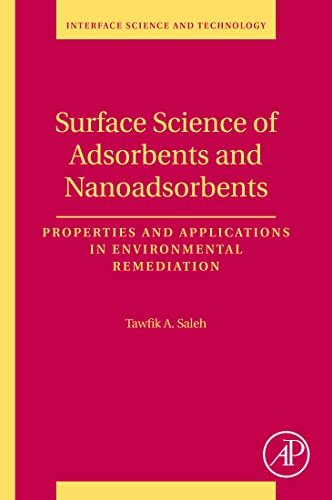 English | 2022 | ISBN: 0128498765 | 344 pages | True PDF EPUB | 128.36 MB Surface Science of Adsorbents and Nanoadsorbents, Volume 34: Properties and Applications in Environmental Remediation presents a unique collection of timely information on the surface science of adsorbents and nanoadsorbents. The book offers a perfect source to document developments and innovations, ranging from materials development and characterization of properties, to applications that encompass the enhancement of sorption, degradation processes, and their usage for the removal of different pollutants, including heavy metals, dyes and pesticides, etc. It is written for post-graduate students, scientists in academia and industry, chemical engineers, and water-quality monitoring agencies working in water treatment, efficient materials, nanomaterials development and quality control. Provides the theoretical and scientific foundation for understanding synthesis and applications in nano adsorbent materialPresents numerous examples to help users gain an understanding of each subjectIncludes a variety of illustrations that further enhance the content  English | 2022 | ISBN: 0128238917 | 555 pages | True PDF EPUB | 31.23 MB Petroleum engineers search through endless sources to understand oil and gas chemicals, identify root cause of the problems, and discover solutions while operations are becoming more unconventional and driving toward more sustainable practice. Oil and Gas Chemistry Management Series brings an all-inclusive suite of tools to cover all the sectors of oil and gas chemistry-related issues and chemical solutions from drilling and completion, to production, surface processing, and storage. The fourth reference in the series, Surface Process, Transportation, and Storage delivers the critical basics while also covering latest research developments and practical solutions. Organized by the type of challenges, this volume facilitates engineers to fully understand underlying theories, practical solutions, and keys for successful applications. Basics include produced fluids treating, foam control, pipeline drag reduction, and crude oil and natural gas storage, while more advanced topics cover CO2 recovery, shipment, storage, and utilization. Supported by a list of contributing experts from both academia and industry, this volume brings a necessary reference to bridge petroleum chemistry operations from theory into more cost-effective and sustainable practical applications. Offers full range of oil field chemistry issues and more environmentally friendly alternatives, including chapters focused on methods to treat produced water for recycle, reuse, and disposalGain effective control on problems and mitigation strategies from industry list of experts and contributorsDelivers both up to date research developments and practical applications, bridging between theory and practice 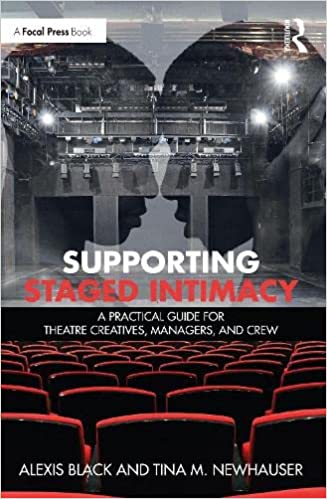 English | 2022 | ISBN: 978-1032072081 | 279 pages | True PDF | 12.48 MB Supporting Staged Intimacy: A Practical Guide for Theatre Creatives, Managers, and Crew examines the relationship between staged intimacy, intimacy direction, and those supporting the process during pre-production, rehearsal, and performance. First, this book addresses challenges and trends in staging intimacy, helping backstage and offstage theatre artists recognize the problematic approaches and culture that led to the emerging field of intimacy direction. This text will then provide tools and recommended practices for supporting the creation and maintaining of staged intimacy, enabling team members to enact contemporary protocols concerning advocacy and agency. Finally, this book will educate and empower readers with the necessary skills to prompt change; by providing modern techniques, essential workplace protocols, and achievable action items, this book will transform the way theatre designers, managers, crew, and other creative team members engage with theatrical consent. |